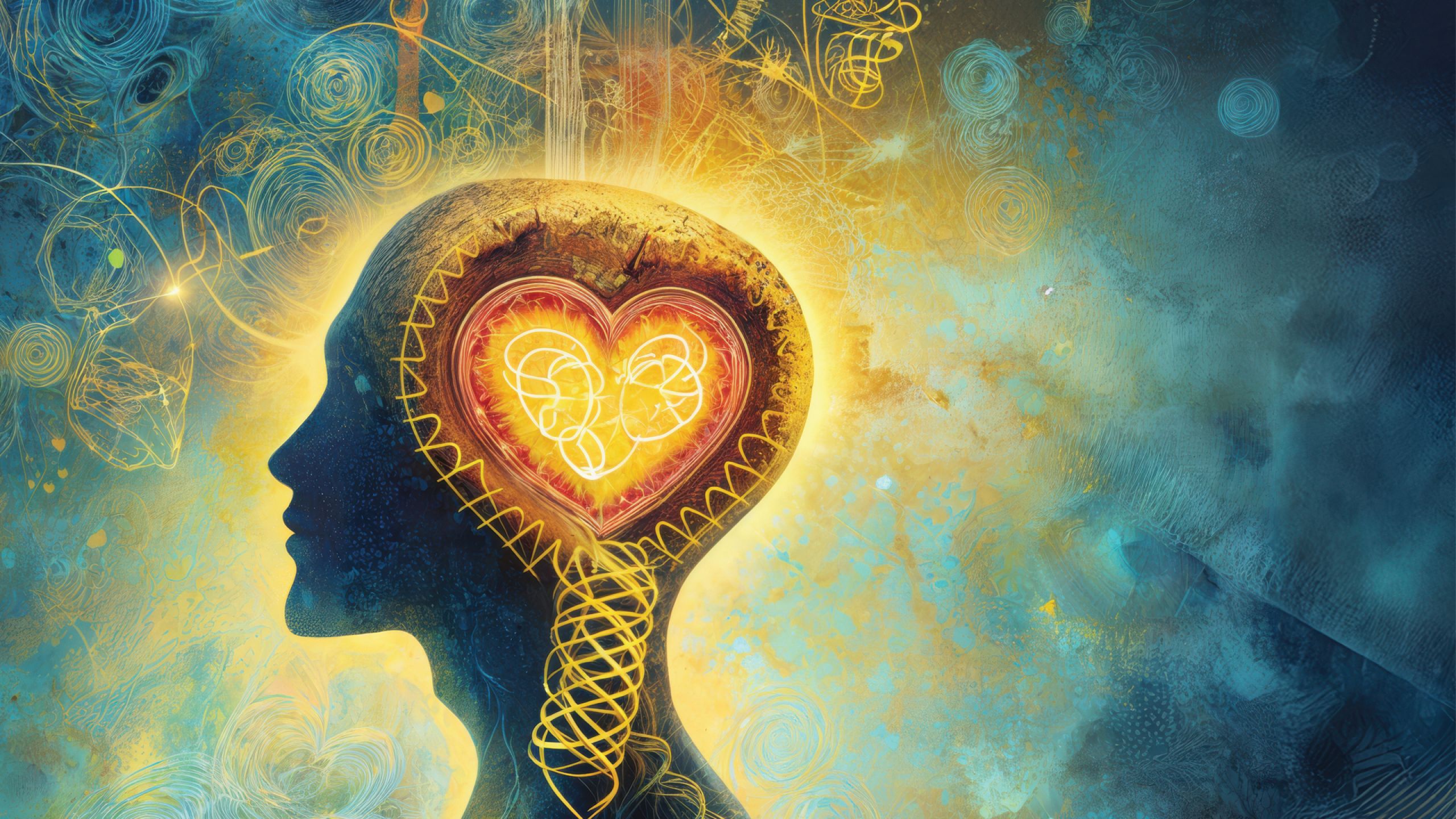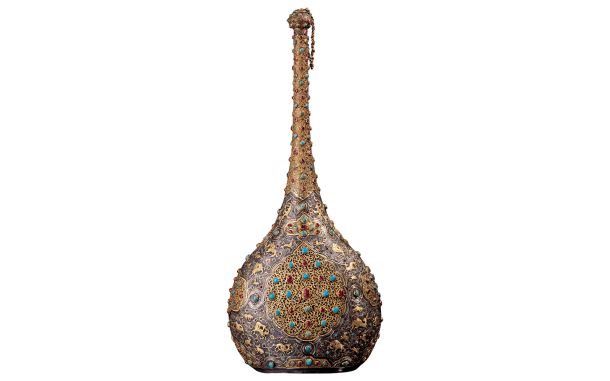The Concept of Gratitude

In This Article
-
From a biologist perspective, gratitude is actually the body experiencing “feel good” chemicals or neurotransmitters released from the brain, called serotonin and dopamine.
-
From a psychologist’s perspective, it is a positive emotional response when someone is willing to show appreciation and return kindness
-
Although gratitude offers numerous benefits, many people find it challenging to practice it daily. This difficulty stems from a fundamental aspect of human nature: we are hardwired to react from a place of survival.
Happiness is a primary goal for all of us – a goal to reach and maintain in our lives. For thousands of years, people have tried many ways to achieve this essential goal. One prominent approach to attain happiness is “gratitude.” In this article, we will cover this concept from various perspectives, including science, psychology and faith.
Most probably, you have heard about or tried some form of a “gratitude practice” as a part of a therapeutic method to achieving a positive life. What is gratitude really? How do we define or practice it? Does it really make any changes in our life or bring happiness? How is it related to our faith?
An article from Harvard Medical School defines gratitude as “a thankful appreciation for what an individual receives, whether tangible or intangible. With gratitude, people acknowledge the goodness in their lives … As a result, gratitude also helps people connect to something larger than themselves as individuals – whether to other people, nature, or a higher power” [1]. From a biologist perspective, gratitude is actually the body experiencing “feel good” chemicals or neurotransmitters released from the brain, called serotonin and dopamine [2]. In addition, when we feel gratitude, the brain produces oxytocin, a hormone important to bonding. It’s the same hormone that mothers release after birth and is found in breast milk. That feeling of thankfulness helps humans stay close to each other [3]. From a psychologist’s perspective, it is a positive emotional response when someone is willing to show appreciation and return kindness [4]. It is also recognized as the act of acknowledging the positive aspects of life. This does not mean ignoring current challenges; rather, it means that even in difficult situations, one can still recognize and appreciate what is going well. No matter the circumstances, you can acknowledge the difficulties while intentionally focusing on what is working.
Deeply felt gratitude can boost the immune system and regulate important genes [5]. One study showed that participants who practiced gratitude just 10 minutes 3-4 times per day had their Immunoglobulin A (IgA) level increase by 49% and cortisol level decrease significantly [6]. IgA is a key protein essential for maintaining a healthy immune system. It continually combats a variety of bacteria, viruses, and other organisms that enter or reside within the body's internal environment. When activated, IgA serves as the body's primary internal defense mechanism. IgA is often described as being more potent than any flu shot or booster, and it is naturally produced by the body. Research also indicates that practicing gratitude improves sleep, reduces fatigue and depression, increases self-care confidence, and lowers systemic inflammation [7]. Gratitude is linked to greater well-being, happiness, hope, and resilience [2]. Conversely, those who do not practice gratitude experience negative effects on their immune and cardiovascular systems.
Some studies also explored gratitude on the societal level and showed that culture, generation differences and age might also shape the level of gratitude or the way people practice gratitude. For instance, a study shows that narcissism, materialism, and envy may cause people’s gratitude to degrade over time [8]. Another study also showed that age was positively associated with gratitude, such that gratitude was higher among older adults and lower among middle age and younger adults [9].
Although gratitude offers numerous benefits, many people find it challenging to practice it daily. Dr. Dispenza points out that this difficulty stems from a fundamental aspect of human nature: we are hardwired to react from a place of survival. “When we are living in a program of survival, it’s very hard to feel grateful, and this takes away our awareness to see what is right in front of us. A person may have ten great things happening in their life, but instead they focus on that one thing that’s not working, because that’s what we do in survival—we prepare for worst-case scenarios so that they don’t happen again” [10]. As we see here, people often need to make an extra effort to overcome this aspect of their nature in order to genuinely practice gratitude. This is why many programs and educators/therapists are working diligently to promote “gratitude practices.” Gratitude practice involves exercises that connect individuals with positive emotions, helping them focus on recognizing the good things in life. It emphasizes appreciating every win, no matter how small. These daily practices elevate observation by encouraging a focus on positive emotions and actions. You will find many ways of doing this suggested by therapists. For instance, one source suggests these activities:
- Spend time in nature
- Appreciate people who have helped you
- Thank people who are closest to you
- Set a time to meditate
- Pray to God
- Have a gratitude journal
- Bedtime “thank you”s
There are other sources with even longer lists. But in essence the main idea is to understand, “It’s not happiness that makes us grateful, it’s gratefulness that makes us happy,” as stated by Benedictine monk David Steindl-Rast [11]. Now, let’s shift gears and explore how faith, particularly in the Islamic tradition, emphasizes gratitude as a fundamental and essential practice.
Gratitude in the Qur’an and hadith
In this section, we will highlight how Islam approaches the concept of gratitude in a nutshell. Gratitude, or "shukr" in Arabic, holds a central significance in Islamic teachings as outlined in the Qur’an and hadith, i.e., Prophet Muhammad’s words, actions, and approvals (peace be upon him). It is one of the fundamental concepts emphasized heavily by the Qur’an and the hadith, by indicating the importance of expressing gratitude towards God, the Creator, and towards fellow human beings. The Qur’an repeatedly emphasizes the importance of gratitude as a fundamental aspect of the believer's relationship with God and a lack of gratitude to God would be perceived as a shameful act for human beings. It is stated in Surah Ibrahim (14:7), "And [remember] when your Lord proclaimed: 'If you give thanks (by accepting faith), I will give you more (of My Blessings); but if you are thankless (i.e., disbelievers), verily My punishment is indeed severe.'" This verse shows the reciprocal nature of gratitude: recognizing God’s blessings results in an increase in divine favor. Furthermore, gratitude is not only an acknowledgment of material blessings but also an acknowledgment of the spiritual and existential gifts bestowed upon humanity. Surah Al-Baqarah (2:152) reinforces this by stating, "So remember Me; I will remember you. Be grateful to Me and do not deny Me." Gratitude is presented as a means of establishing a connection with the Divine, fostering mindfulness, and reinforcing the spiritual dimension of human existence. In addition, Islam places great emphasis on gratitude not only towards God but also towards fellow human beings. The Qur’an encourages believers to be grateful to their parents, as exemplified in Surah Luqman (31:14): "And We have enjoined upon man [care] for his parents. His mother carried him, [increasing her] in weakness upon weakness, and his weaning is in two years. Be grateful to Me and to your parents; to Me is the [final] destination."
Prophet Muhammad (peace be upon him) exemplified gratitude in his actions and teachings. Numerous hadith reports highlight the Prophet's emphasis on expressing gratitude in various aspects of life. One well-known hadith narrated by Abu Huraira states, "God is pleased with His servant if, when he eats something, he thanks God for it, and when he drinks something, he thanks God for it" (Muslim). We can clearly see the Prophet's teachings on expressing gratitude in seemingly mundane daily activities, recognizing that even the simplest acts warrant appreciation. Another Hadith also emphasizes the importance of expressing gratitude towards people. Prophet Muhammad (peace be upon him) stated as narrated by Abu Huraira, "He who does not thank the people is not thankful to God" (Ahmad), acknowledging and appreciating the kindness of others is an integral part of being grateful to God.
Islamic scholars’ interpretation of “gratitude”
Islamic scholars have explored and extensively discussed the concept of “gratitude/shukr.” In this section, we will examine examples from several scholars to illustrate their insights. One of the early scholars, Imam Ghazali, describes shukr (gratitude) as having three components and believes that true gratitude involves a harmonious combination of these three aspects:
- Knowledge (‘ilm): Recognizing the blessing and knowing that it is from God. This involves an awareness and acknowledgment of the good things one has received.
- State (hal): Experiencing joy and happiness in the heart due to the blessing received. This inner state reflects the emotional aspect of gratitude.
- Action (amal): Acting in a way that is pleasing to the giver of the blessing, which in this context is God. This means using the blessing in a manner that aligns with God’s intention and love [12].
Said Nursi, a prominent Islamic scholar of the early 20th century, addresses the concept of gratitude in his extensive Qur’anic commentary known as the Risale-i Nur. Nursi's approach to gratitude is deeply rooted in his interpretation of Islamic teachings, focusing on the relationship between humans and their Creator. Nursi contends that gratitude is the key to a meaningful connection with God and the pathway to spiritual growth. According to Nursi’s writings, gratitude is not merely a set of rituals, but a profound acknowledgment of the blessings bestowed by God. He argues that expressing gratitude requires a deep understanding of the interconnectedness of all creation and recognizing the divine wisdom behind every experience, whether pleasant or challenging. Nursi's concept of gratitude extends to an appreciation for the natural world, fellow human beings, and the guidance provided in religious scriptures [13].
Fethullah Gülen, a contemporary Turkish scholar, also places a strong emphasis on gratitude as a fundamental value in his teachings. Although Gülen and Nursi have many common points in explaining gratitude, in Gülen’s perspective gratitude extends beyond a mere acknowledgment of favors received; it becomes a transformative force that shapes one's character and interactions with others. Gülen highlights the reciprocal nature of gratitude, emphasizing that expressing thanks is not only a moral obligation but also a means of cultivating a harmonious society. In Gülen's numerous writings, including his sermons and essays, he often refers to the Qur’anic teachings that emphasize gratitude as a virtue. According to Gülen, expressing thanks to God is critical in gratitude but it also extends to recognizing the contributions of fellow human beings. He argues that a society built on gratitude fosters empathy, compassion, and social cohesion. Gülen's emphasis on education and dialogue as tools for promoting understanding and appreciation among diverse communities reflects his belief in gratitude as a unifying force [14].
Finally, we can see how Rumi – another prominent figure and poet in Islamic tradition from 13th century – described gratitude in his teachings. Here are some quotes from his words: “Gratitude as a Path to Spiritual Awakening”, “Wear gratitude like a cloak, and it will feed every corner of your life” and “Be grateful for whoever comes, because each has been sent as a guide from beyond." As seen from these quotes, Rumi views gratitude as a profound and transformative practice that leads to spiritual awakening, connection with the divine, and a more enriched human experience. His poetry encourages individuals to cultivate a grateful heart in all circumstances, recognizing the divine presence in both joy and adversity. Rumi's teachings on gratitude resonate with the broader Sufi tradition, emphasizing the importance of love, humility, and appreciation in the journey toward spiritual enlightenment.
To conclude our article, we should understand that gratitude is not merely a ritualistic expression of thanks but a transformative spiritual practice that spreads through every aspect of a person’s life. It establishes a reciprocal relationship between the servant and the Creator, fosters social harmony, and contributes to individual well-being and bring happiness in their life. Let’s end this article with this wish and prayer “May your journey in cultivating gratitude illuminate your path with the light of faith and bring you closer to the divine presence. As you weave gratitude into the fabric of your daily life, may you find joy, peace, and a deeper connection with those around you. May your heart be filled with thankfulness, enriching your soul and guiding you towards a life of righteousness and fulfillment.”
References
- https://www.health.harvard.edu/blog/in-praise-of-gratitude-201211215561
- https://www.health.harvard.edu/healthbeat/giving-thanks-can-make-you-happier
- https://pulse.seattlechildrens.org/the-science-of-gratitude-and-how-kids-learn-to-express-it
- Emmons, R. A., & McCullough, M. E. (2003). Counting blessings versus burdens: An experimental investigation of gratitude and subjective well-being in daily life. Journal of Personality and Social Psychology, 84(2), 377–389. https://doi.org/10.1037/0022-3514.84.2.377
- https://blog.drjoedispenza.com/blog/gratitude/thanksgiving-and-authentic-gratitude
- https://drjoedispenza.com/dr-joes-blog/the-transformational-power-of-gratitude
- https://www.uclahealth.org/news/article/health-benefits-gratitude
- https://thepioneerpress.org/4949/news/thankfulness-in-a-1st-world-country-vs-a-3rd-world-country/
- https://www.ncbi.nlm.nih.gov/pmc/articles/PMC6519723/
- https://blog.drjoedispenza.com/blog/gratitude/thanksgiving-and-authentic-gratitude
- https://www.propelgrowth.com/2014/11/27/cultivating-attitude-gratitude/
- Al-Ghazali on Patience and Thankfulness, Translated by Henry T. LittleJohn, Cambridge, UK, Islamic Texts Society, 2016.
- Nursi, Bediuzzaman Said. The Letters, Twenty-eight Letter, NJ: The Light, Inc.
- Gülen, M. Fethullah. 2013. Emerald Hills of the Heart, Vol. 1. “Shukr (Thankfulness),” p. 96.









